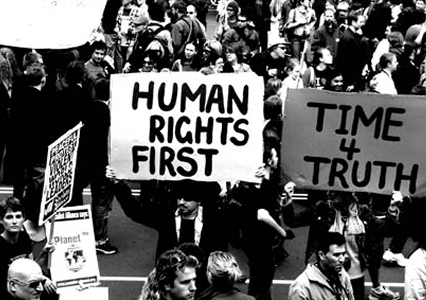
Since the publication of the Universal Declaration of Human Rights in 1948, human rights have been established as customary international law, shaping global norms and reframing the enactment of legal policies. But while being upheld as a universal principle on paper, in practice, however, human rights are frequently weaponized as political tools to serve strategic interests. All too often, governments and institutions selectively reprobate certain violations all while completely disregarding others, raising valid concerns about double standards prompting policy inconsistency.
In global affairs, human rights rhetoric can be utilized to serve multiple purposes, acting as a means to pressure opponents, justify sanctions, or influence public opinion. Yet it can also be strategically overlooked when it contradicts economic or security priorities. This selective application can weaken the credibility of social justice advocacy, making it appear politically motivated rather than grounded in universal principles.
For example, in the context of diplomatic and geopolitical conflicts, human rights advocacy is frequently used as a tool for leverage. In fact, some states or entities highlight violations in rival nations while maintaining alliances with actors engaging in similar practices. This approach often leads to inconsistent enforcement, where responses to these violations vary depending on economic, political, or military interests, rather than the severity of the abuse.
Usual economic measures framed as responses to human rights infringements include sanctions and trade restrictions. Similarly, humanitarian justifications have been used to endorse military interventions and proactive political operations. While foreign legal action may sometimes be necessary to prevent large-scale atrocities, historical examples show that such unarbitrated tampering can also lead to unintended – if not insouciant – consequences, including prolonged instability and exacerbated human suffering. In some cases, civilian populations find themselves disproportionately impacted by the economic pressures that claim to fight for their justice. As such, when human rights serve as a justification for force but are ignored in other contexts, it raises ethical questions about the true motivations behind such decisions.
The inconsistent application of human rights principles can undermine international institutions and global trust. When accountability measures appear to target specific actors while sparing others, it creates skepticism around the fairness of enforcement mechanisms and their effectiveness in addressing the concerns they insist on. This can weaken efforts to promote genuine human rights protections, as affected communities may perceive advocacy efforts as driven by political agendas rather than a commitment to justice.
To ensure credibility, human rights must be upheld as a universal and impartial standard, applied consistently regardless of political or economic considerations. Only then can human rights function as a true foundation for global justice rather than a tool of selective diplomacy.